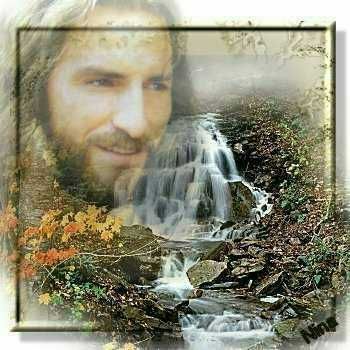
If you believe you're going to heaven, what do you think it will look like?
As a kid, I remember thinking that heaven was on top of the clouds - that a walk down a street in heaven was like walking on a soft bed, and that the buildings and structure of heaven didn't vary much from where the Care Bears lived.
Maybe it's not a place at all. Some Christians believe that heaven is a state of mind, earned when you are truly saved and redeemed by Jesus Christ.
But what if it's none of the above? What if heaven is, as Belinda Carlisle sang, a place on Earth?
If so, we've sure made a fine mess of it.
- - - - -
Have you ever seen that "Footprint" poem - the one where the narrator sees two sets of footprints (feetprints?) on a beach, and then only one, and it's because God was carrying the narrator at the end? Maybe it looked like this:

You see that nice beach scene the poem is placed over? You get a sense for the poem's meaning because the visual - two sets of feet along a sandy waterfront - is so immediate. Anyone who's been on a beach has seen something similar.
I got thinking about the "Footprints" poem because, recently, I've been reading about Christians embracing environmentalism as a way to display their faith in God and to show their commitment to His creation.
If God made the world, and us in his own image, what would he think about us tearing up his place?
There are some Christians who seem to think that environmentalism is some conspiracy job dreamed up by liberals, lefties, and - worse - the French. But there are even die-hards - like my favorite nutjob Pat Robertson - who are starting to come around.
On Bill Moyer's recent "On America" series, he ran a story called "Is God Green?" where he finds out what kind of Christian becomes concerned with the environment, and why other Christians think those Christians are nuts. His story takes us to West Virginia, where coal mining companies are actually leveling entire mountains to get at the black gold inside, and how that makes the water undrinkable and the citizens sicker than hell.
What would Jesus do? Would he poison the streams just to earn a buck or two?
- - - - -
There's an entire market of Christian quotes and Bible verses that are printed on majestic scenes. Perhaps you've seen one:

They're on calendars, mugs, greeting cards - you name it. The word of God is paired with a glowing scene of beauty and splendor. And why not? His words are supposed to be uplifting and what says "you're saved" like a mountain-and-stream scene?
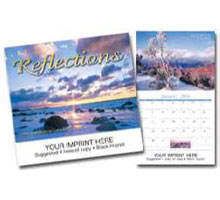
But if you're a Christian, and you think helping the environment is for hippies, these two messages don't jive. You wouldn't pair, say, a passage from the Psalms with a Wal*Mart parking lot scene, would you? They don't fit.
So what kind of case can a Christian make for spoiling the very creation that we're supposed to enjoy, raise our kids in, and marvel at the beauty of?
I remember Dr. Renner, in our Environmental Journalism class, saying that - when he went to church in Iowa - his preacher would say that everyone was just passing through "this mudball Earth" on the way to the true home up in heaven.
"Just passing through," Renner would joke.
And if you truly believe that, then maybe using the Earth's resources until they're all dried up makes sense. If this home is only temporary, what's wrong with a few extra parking lots?
Well, for one, Christians don't know how long they'll be hanging around for. Jesus himself said that Christians won't know the hour or the day he'll return. Whenever he feels like coming back, pretty much, like a thief in the night. It could be a million years from now. Who would want to suffer through a polluted, global-warming-raged Earth for that long?
Second, he might not come back at all. That is a possibility for some folks.
Third, what if Earth is really all we have? What if heaven IS a state of mind, one that - once we're dead - disappears like sand in a windstorm?
In that case, get used to scenes like this on your Christian calanders:
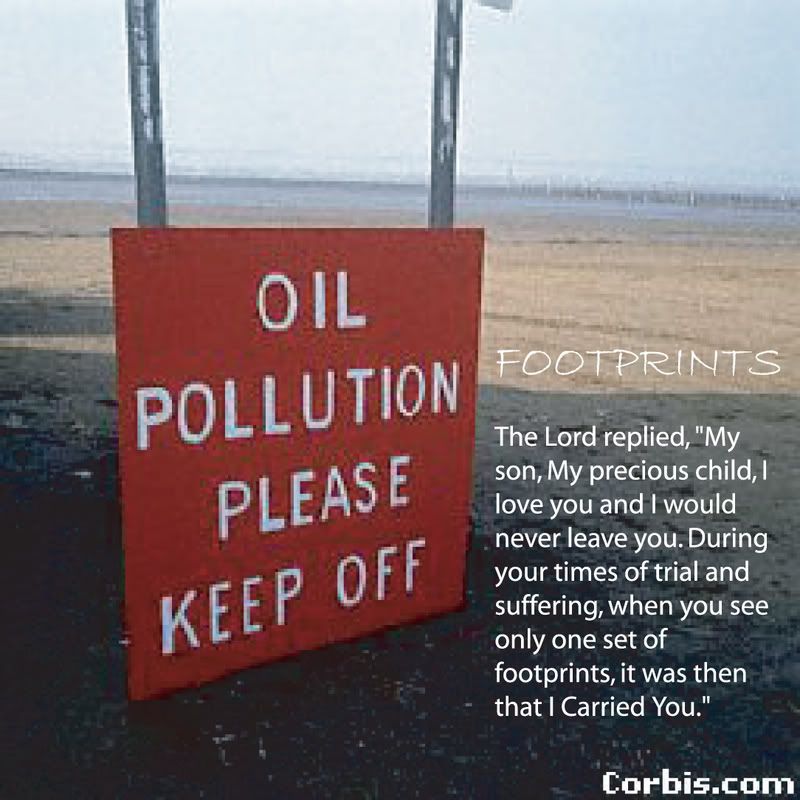
And can you imagine getting a greeting card with this on it:
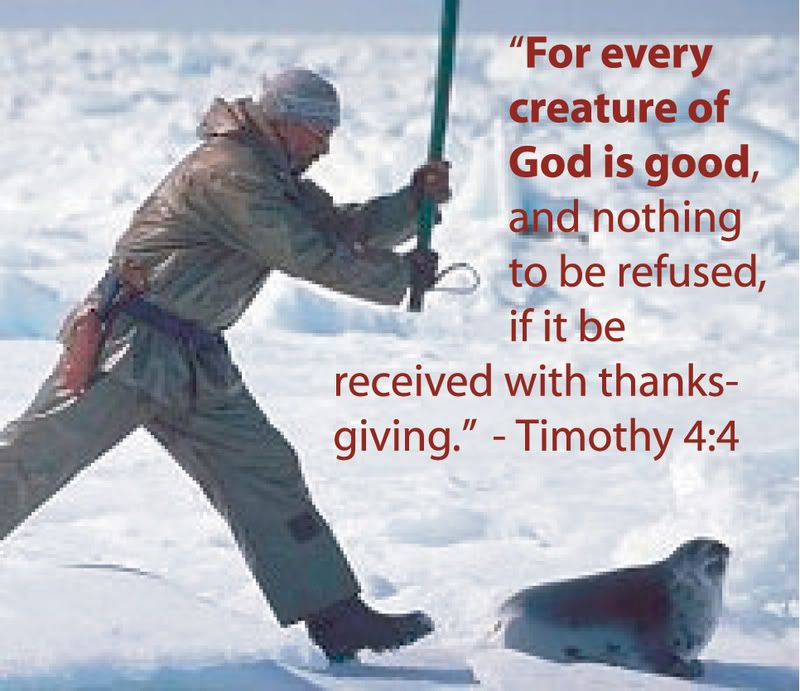
Now that's compassion and mercy for God's creatures.
Sorry, what was that about dominion over all living things?
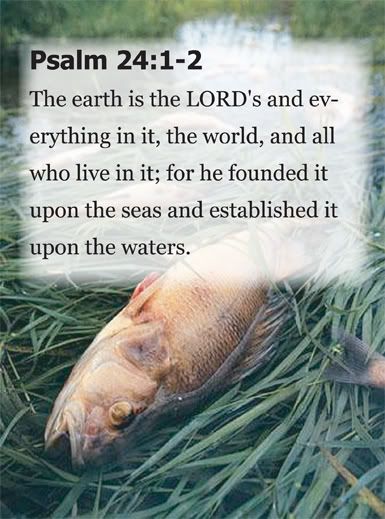
I made these graphics half in jest, but more to get people to think about the policies they support.
It seems to me that if you truly care about God's creation, and our place in it, then you would be careful when you value the Almighty Dollar over Him. Because that's what it comes down to - using the creation as a means to an end (wealth) is downright sinful.
Luckily there are more and more Christians converting to the side of good stewardship of the Earth.
- - - - -
That first picture I posted, way up at the top, speaks to me more than those initial images I had in my youth of a city in the sky as the rightful place of heaven.
I agree with Erik Reece, who - in his "Jesus Without the Miracles: Thomas Jefferson's Bible and the Gospel of Thomas" (originally printed in the Dec. 2005 Harper's - go here to read it, it's great) - says that a vision of of the Earth as merely a log in the stove of industry is a shameful way to behave:
"As the world all around us sickens and dies from the poi-son discharges of Hamiltonian industry, these twin gospels suggest that it is time we inverted Pascal's famous wager to say not that we should believe in heaven because we have nothing to lose but rather that we should believe first in this world, because in losing it we may lose everything. And if we can somehow live justly, modestly, with generosity and compassion, we have everything to gain."
Reece's idea that pulling heaven out of the sky and placing here on Earth fits nicely with Thomas Jefferson's dream of an agrarian, utopian America - "where farmers intuit the will" of the Creator from the laws of nature.
"Perhaps we won't have to wait for the kingdom of God," Reece writes.
But what will happen to it in the meantime?



No comments:
Post a Comment